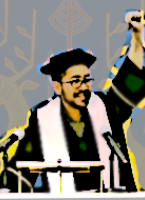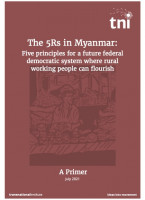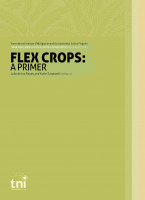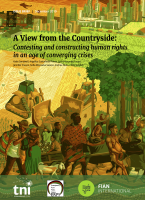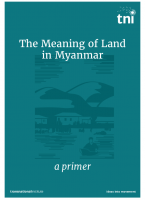Scholar-Activism and Land Struggles
This book is about scholar-activism and political struggles for land. Scholar-activism is a way of working that tries to change society by combining the best features of radical academic and political activist traditions, despite the many contradictions and challenges that this entails. The role played by scholar-activists in land struggles is important, but is not straightforward. This book unapologetically celebrates the contributions of scholar-activism in land struggles and scholarship, but more than this, it is about exploring the contradictions and challenges facing scholar-activism. It is neither a glorification of the achievements of scholar-activism, nor a set of prescriptive propositions on how to ‘do’ scholar-activism. Rather, it addresses contentious issues in scholar-activism, many of which are rarely discussed, or are discussed only gingerly and awkwardly when they cannot be avoided. It is a book written by two scholar-activists who have focused their individual and collaborative research and activist works on the politics of land and the role played by radical agrarian movements. Insights in this book are drawn on the experiences of the authors working in the three main sites of global knowledge circuits: academic institutions, independent research institutions oriented to practical politics, and left-wing agrarian movements.
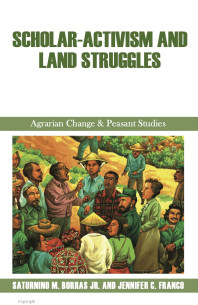
Authors
Foreword
We are living through a critical moment for global justice struggles. The effects of the deepening climate crisis are becoming visible to all. Inequality is rampant and growing. State repression and surveillance are increasing. Many proposed ‘solutions’ to the climate crisis – from carbon markets to agrofuels – will intensify these dynamics as they rely on land-grabbing, extractivism, and the creation of new sacrifice zones and sacrificial peoples around the world, so deepening inequality and multiplying the wealth of the very few. Social movements are struggling not only to block the worst of these advances, but also to build a more just world, to negotiate new relationships with ‘nature’ and each other, and to resist and roll back the rapacity and destruction of capitalist accumulation. But the challenges that they face are formidable. The need for analyses which are deep, bold, and embedded in peoples’ lived realities is increasingly acute as movements struggle to confront new and rapidly- changing realities.
At the same time, the relationship between knowledge, truth, and justice is today deeply fraught. Much-needed struggles about knowledge creation have called into question the roles, structures, and interests of academic institutions; the role of knowledge creation in legitimating and maintaining social and economic power has been exposed and condemned; decolonial, feminist, and indigenous critiques have confronted claims of abstraction and certainty; and the collection and use of data and information are increasingly critical terrains of struggle. In this context there is an urgent need to reveal and recover the emancipatory potential of knowledge, and the transformative power of research and thinking grounded in diverse social realities and explicit commitments to justice.
This book provides a vital and timely contribution to these struggles. With wisdom and humility born of decades of work with and for agrarian and environmental justice movements, the authors unpack the role of the scholar-activist; the critical contributions they can make to movements; and the tensions, risks, challenges, and pitfalls of their work. The book does this with special reference to land struggles, recognizing the great and growing importance of these struggles in the context of climate change, and the possibilities they offer for uniting diverse kinds of working people. The book offers a rich theoretical exploration of the role and importance of scholar-activists in relation to agrarian and climate justice struggles in particular. More than this, though, it is a guide for all of those who believe that the point of knowledge is to change the world for the better, and who strive to live their lives according to that commitment.
Collectively, we (the authors of this foreword) have decades of experience navigating the awkward but fertile borderlands between activism and knowledge creation, and bringing scholar-activists together with social movements to build shared arguments, proposals, and knowledge for a better world. We work with young and aspiring scholar-activists and with movements engaged in different grassroots struggles around the world. It is on this basis that we can say with confidence that this book will be an invaluable guide to scholar-activists, whether they are based in academe, embedded in movements, or based in independent activist research institutions like TNI (to which we belong).
We have had the privilege to work alongside Jenny and Jun and watch some of the ideas and questions in this book take shape. Jun is a long-time Fellow of TNI. Jenny has been a part of the Agrarian and Environmental Justice team and of the Myanmar team at TNI for over 10 years and has played a key role in shaping the work of both teams. They each bring over 35 years of knowledge and experience from the many struggles for social justice they have witnessed and taken part in. Through their scholar-activism, they have helped TNI to navi- gate complex relationships with agrarian and food sovereignty movements around the world, and to build relationships with progressive academics through initiatives like the Emancipatory Rural Politics Initiative, the Land Deal Politics Initiative, and the ICAS, which have embedded TNI in broader scholar-activist networks.
We are deeply grateful to Jun and Jenny for writing this book. It offers a compassionate but uncompromising account of the tensions, challenges, and questions that scholar-activists must confront, which will surely make it required reading for future generations of scholar-activists. At the same time, it offers the promise that the work of confronting these questions is not solitary but collective, and invites us all to put our shoulder to the plough to carry on the work of building a better world.
Pietje Vervest, Hamza Hamouchene, Katie Sandwell
Transnational Institute

